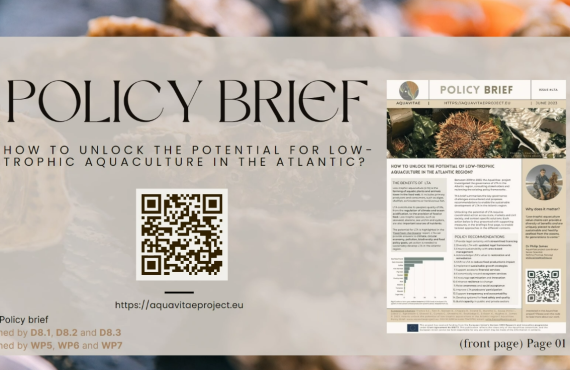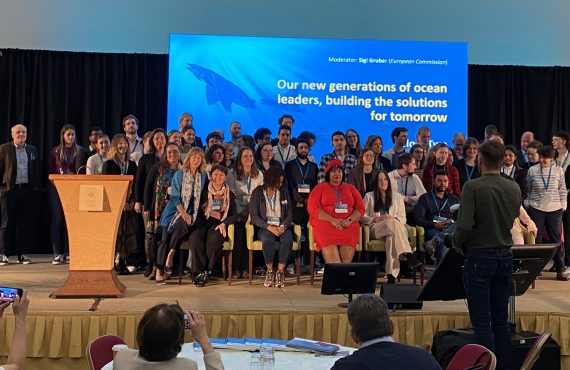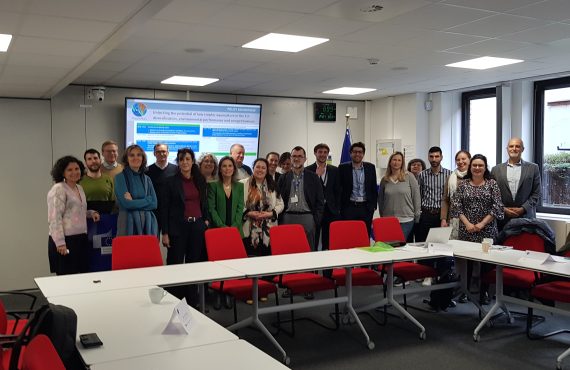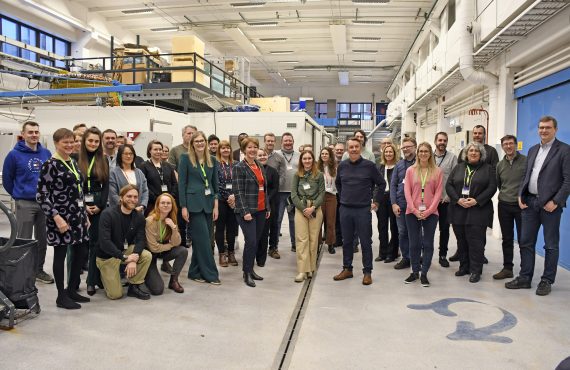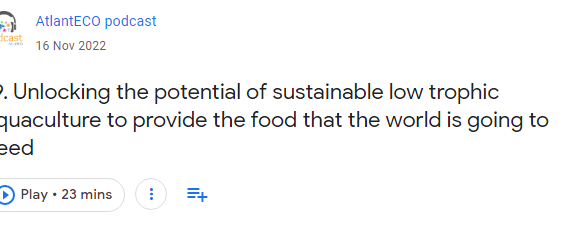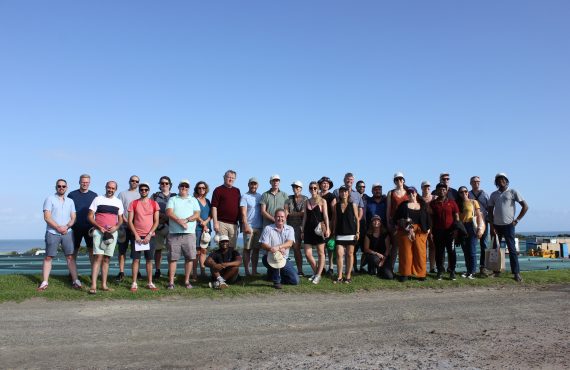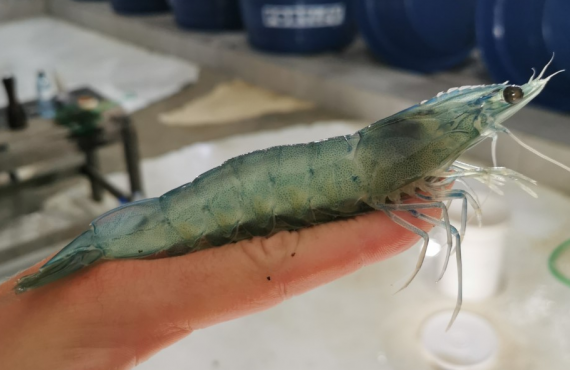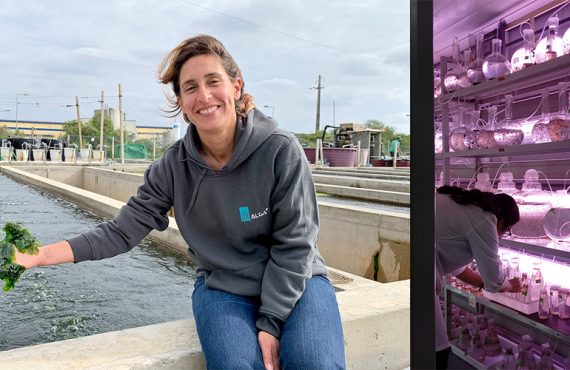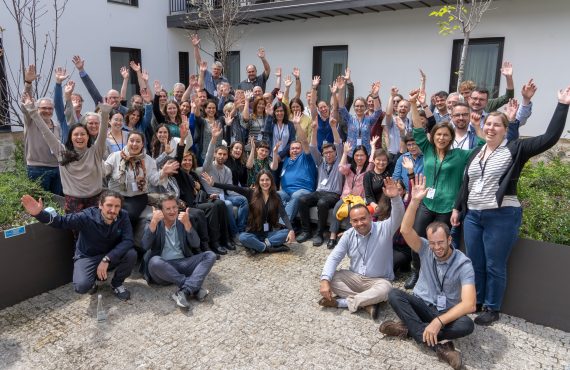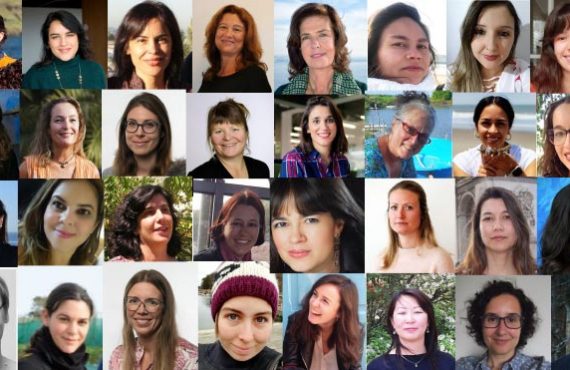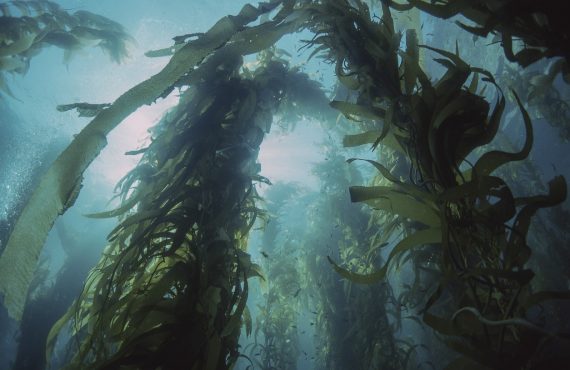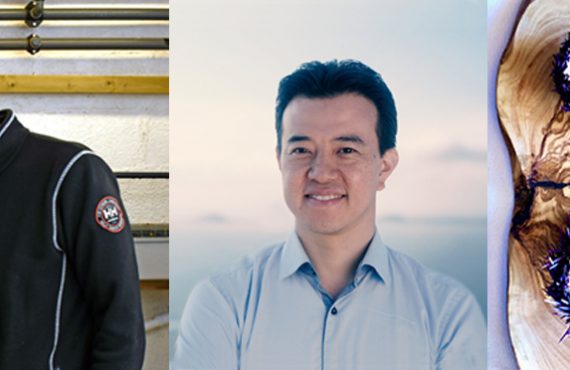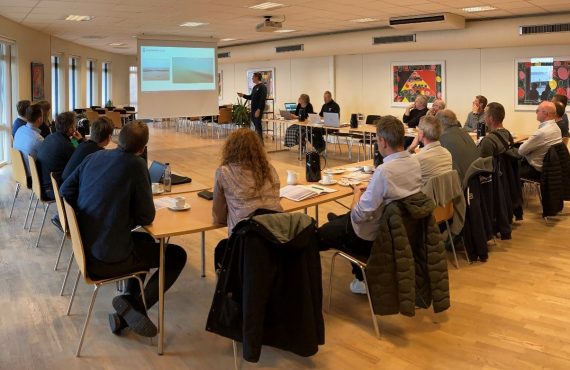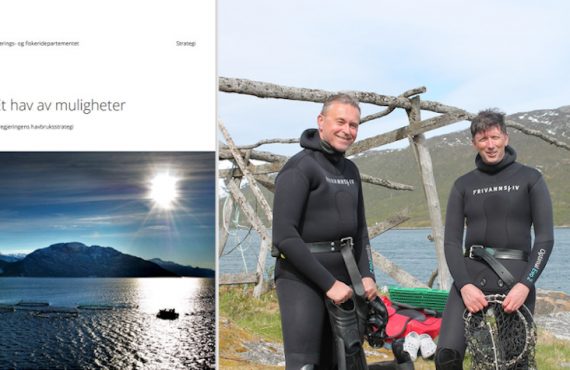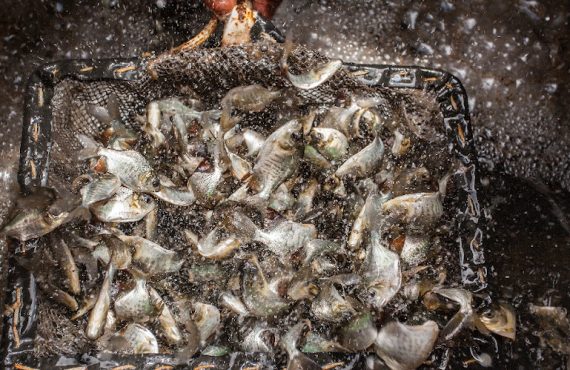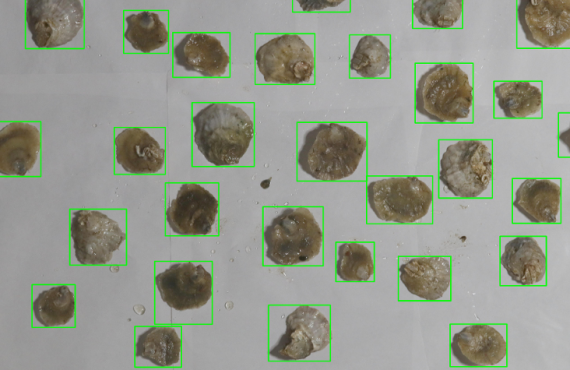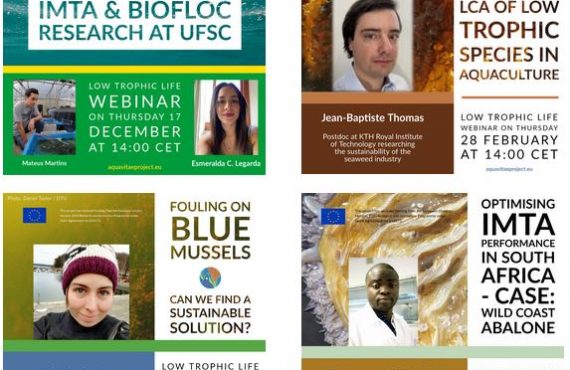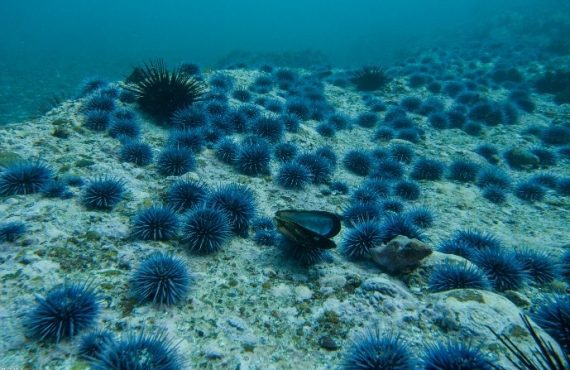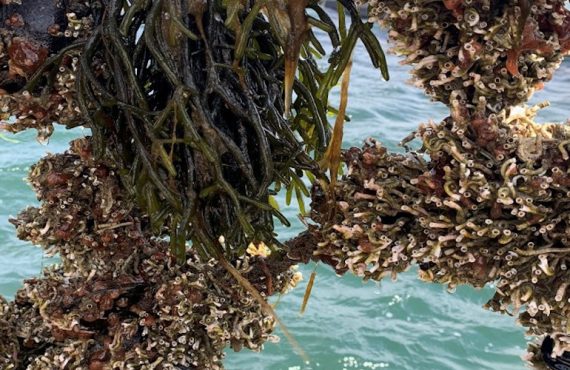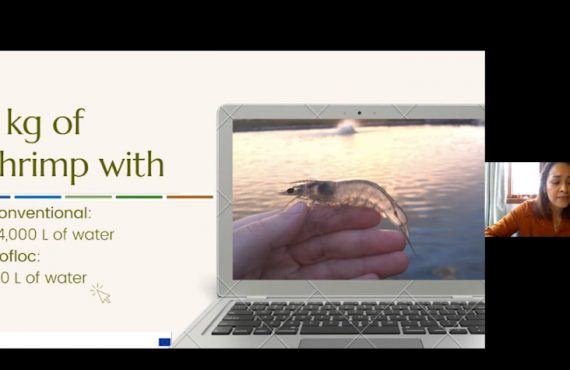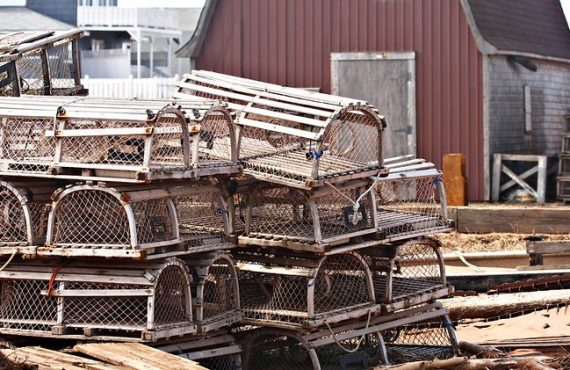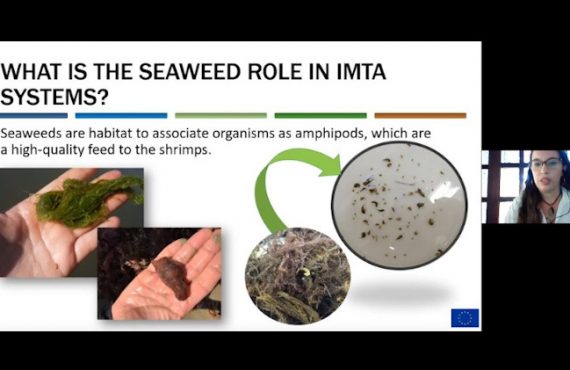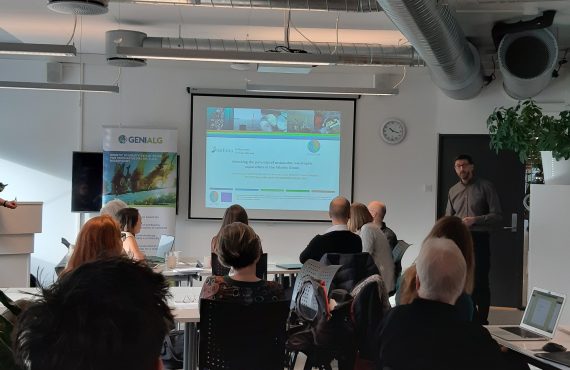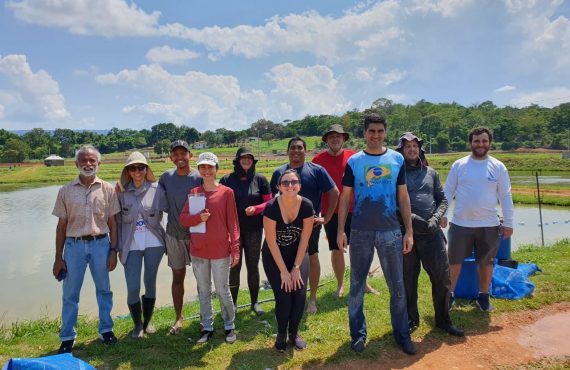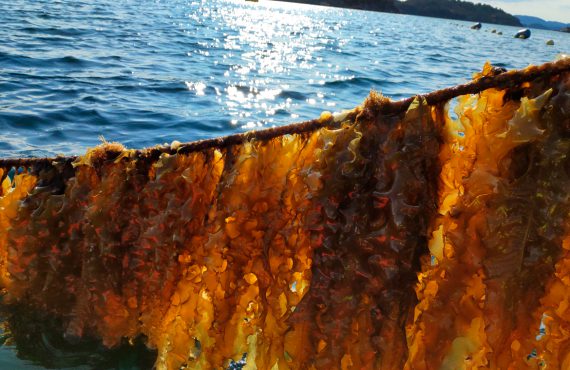Speakers at AquaVitae´s workshop at EMD. From left to right: Philip James, Ólavur Gregersen, Ann Wu, Sylvain Huchette, Gercende Courtois, and Cliff Jones (online). Photo: ©AquaVitae.
European Maritime Day (EMD) was celebrated in Ravenna, Italy, from 19th to 20th May. This year’s topic was Sustainable blue economy for green recovery.
This 2-day-event consist of thematic sessions, networking meetings and workshops. Out of 70 applications, 24 were accepted to present a workshop. AquaVitae, a project funded by H2020, was one of them.
50 participants attended physically and online the workshop Joining forces from Europe to South Africa with new food systems in aquaculture. It was organized by CETMAR (Spain) and presented in a round-table format on May 20th.
Philip James, AquaVitae´s coordinator, led a discussion among 5 researchers of the project: Gercende Courtois de Viçose, from ULPGC (Spain), Sylvain Huchette, from France Haliotis (France), Ólavur Gregersen, from Ocean Rainforest (Faroe Islands), Cliff Jones and Ann Wu, from Rhodes University (South Africa).

The 4 countries are working with the same techniques and species: algae and abalone. As Ólavur Gregersen, from Ocean Rainforest, explained, one of the objectives of AquaVitae is to investigate how to cultivate ocean species more sustainably. The culture of low-trophic allows to produce more protein with a low environmental impact in a circular economy basis.
In that sense, the speakers highlighted the advantages of growing in an IMTA (Integrated Multitrophic Aquaculture) system where one species feeds on another. For example, abalone feeds on macroalgae and, at the same time, algae collect CO2. In fact, carbon sequestration is another objective, with “the removal of 1.1 million tones of CO2 by 2030”, remarked Ólavur.
The data obtained allows them to either improve the systems or implement them: “We have been inspired by South Africa to do land-based macroalgae production tanks. It has been a challenge to replicate the techniques in Europe”, said Sylvain Huchette, CEO of France Halotis.

Philip James emphasized: “It is not only about the results, but about the collaboration”, encouraging more projects to be developed regardless the geographical gap in order to increase sustainability together.
During the debate, the audience showed interest in algae production, sustainable production of new species, the mechanisms to facilitate international cooperation in research and the use of the results by the industry, among others.
AquaVitae project is funded by the Horizon 2020 and it is represented by 35 partners from the Atlantic basin: Europe, America (North and South), Namibia and South Africa belong to the consortium.




